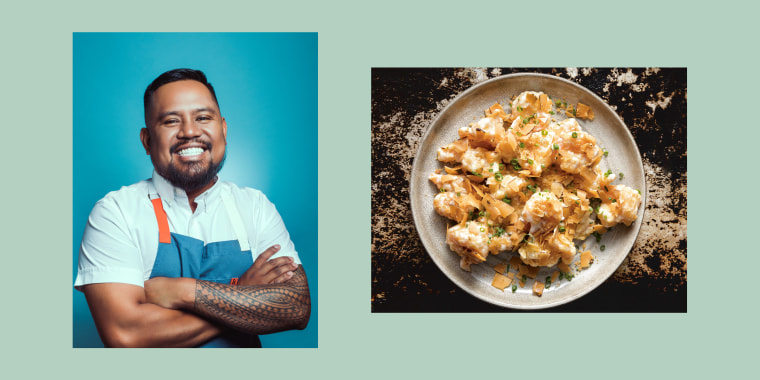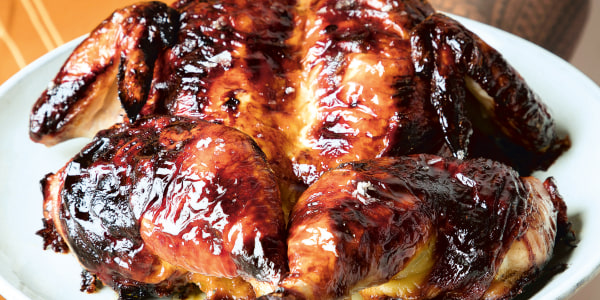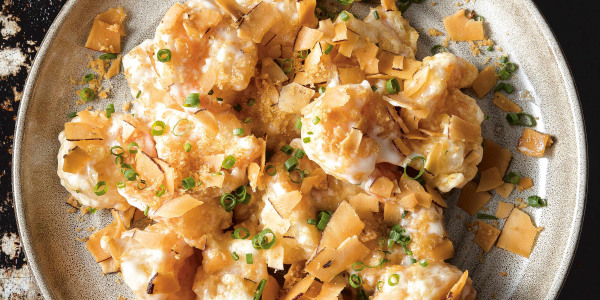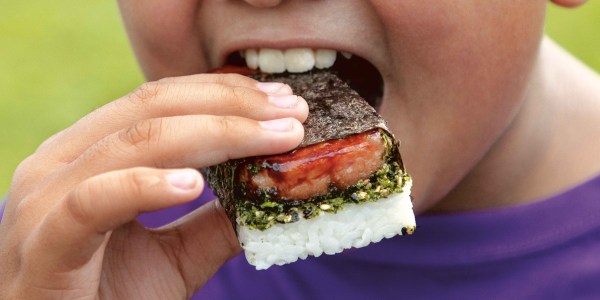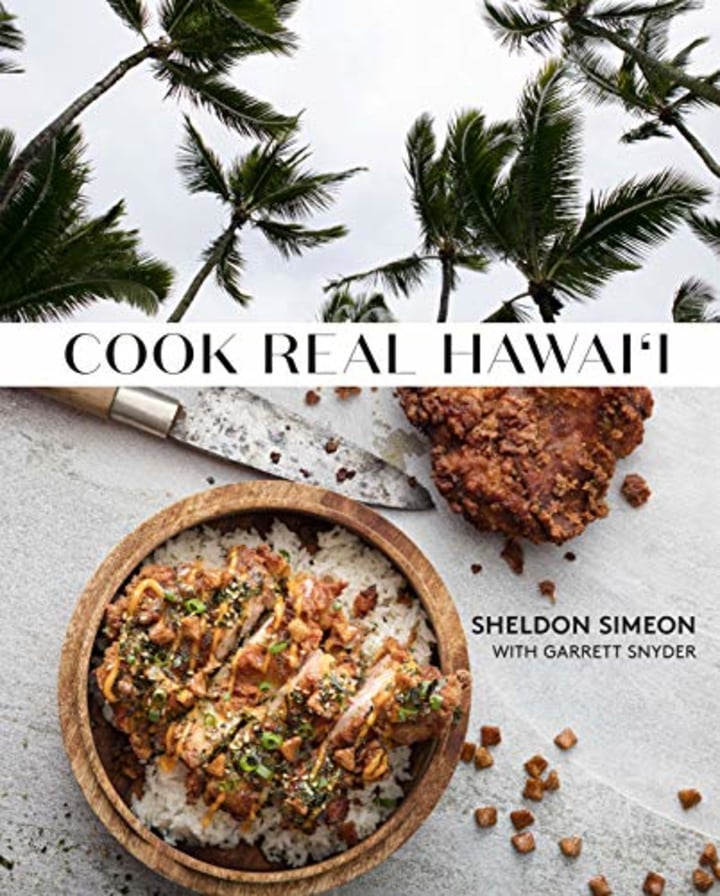During Asian Pacific American Heritage Month, TODAY is sharing the community’s history, pain, joy and what’s next for the AAPI movement. We will be publishing personal essays, stories, videos and specials throughout the entire month of May.
Mai tais, coconuts and pineapple on pizza: These may come to mind when you think about Hawaii food. But its cuisine is way more nuanced than that — and Maui chef Sheldon Simeon is on a mission to show how it’s been influenced by the diversity of cultures in the Islands in his debut cookbook, “Cook Real Hawai'i.”
“That was a huge part in making this cookbook,” the two-time "Top Chef" finalist and father-of-four told TODAY Food. “I’ve traveled around the country and people always ask me what kind of food I make. I make Hawaii food — but nobody really knew what that was. People don’t know the layers of influences in our cuisine and this was an opportunity to share that.”
In this cookbook, there are 100 recipes for dishes — many from his family — rooted in every culture in Hawaii, from Filipino pork belly adobo to Hawaiian pipi kaula(jerked beef) to Okinawan pig’s feet. It’s an homage to all the people, places and food he’s experienced in Hawaii — with heartfelt stories behind many of the dishes featured.
TODAY Food: What was something you discovered while researching and writing this cookbook?
Sheldon Simeon: I discovered I hate recipes. [Laughs.] The way I cook, I put one spoon of this and one pinch of that — the full auntie-style of doing it. I’m fortunate I can cook and replicate from that, but you can still make soulful and delicious food by following a proper recipe. It’s just not the way I cook. I buy a cookbook, go through it, then start automatically adjusting it already. I’m tweaking, always.
Is there a dish in this cookbook that’s new to you in some way?
My dad always talked about this shoyu (soy sauce) pork adobo that my grandma would make. She would use pork belly and it had a dark caramelized color. It was different from what we make (in Hawaii). We make adobo with pork butt, heavy vinegar, put it all in a pot and let it simmer. That’s very local-style. It came full circle when I went to the Philippines for the first time five years ago and figured out how to make adobo the way my grandma did from a chef from the town she grew up in. This is the way I cook it now, for sure.
Who’s the biggest influence on you when it comes to your cooking?
My dad, hands down, still to this day. He’s a welder, but he’s known for his cooking. I seriously think I’m turning into my dad, too. [Laughs.] He sends me pictures of whatever he’s cooking. The other day, he sent me a text: "Ho, check out my pūpū (appetizers) for da Lakers game." That’s seriously the kind of stuff he does.
Some of your recipes — like Spam musubi and POG — are super simple. Why include them?
Easy if you know, as my uncle would say. Simple is the key to Hawaii cuisine, and I wanted people to discover that and have that feeling that they can be successful. Those are the recipes people are posting on Instagram and so stoked about. I love those cookbooks that you just look at and you know you never going to make it, and those books have a purpose. But this cookbook is totally different. This is definitely for the home cook. These dishes are not about the technique, not about creativity. There’s some of that, but it’s really about the dishes that have soul to it. It can be the simplest thing, but it resonates with so many people, especially if you grew up in Hawaii.
What do you hope people learn from this cookbook?
These recipes show the blending of our cultures. It’s not just Filipino or Japanese or Hawaiian. It just shows that people evolve, culture evolves, and we should still celebrate it.
For someone who hates recipes, you now have an entire book of them.
That’s the most surreal part of it, holding it in my hands and knowing that these are going to live on forever. Yeah, I love seeing other people are replicating (the dishes). They’re cooking from it and they know it’s a piece of my family.
"Cook Real Hawai'i," by Sheldon Simeon and Garrett Snyder
This interview has been edited and condensed.
